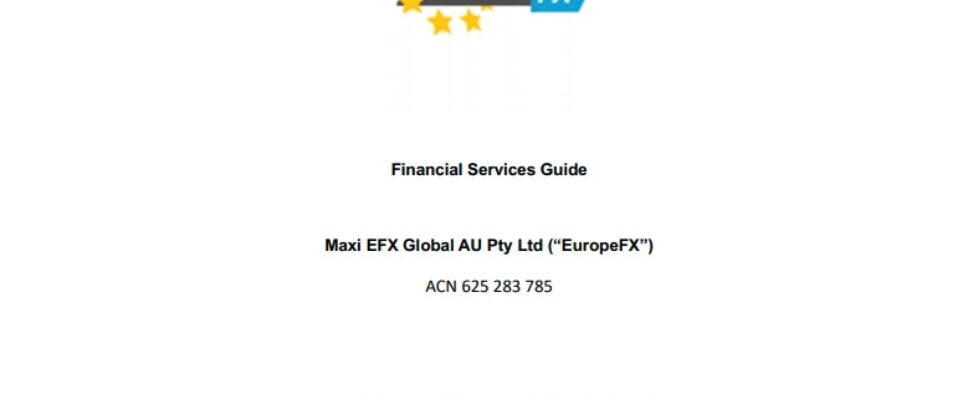USGFX Australia rep EuropeFX hit with document disclosure court order
Australia financial regulator ASIC has announced that it successfully obtained an order from the Federal Court of Australia compelling Maxi EFX Global AU Pty Ltd to produce documents in response to an ASIC notice issued to it.
Maxi EFX operated the EuropeFX brand in Australia, and acted as a Corporate Authorised Representative of now-bankrupt Union Standard International Group Pty Ltd, which operated the USGFX brand down under. Maxi EFX was controlled by Israeli businessman Roy Almagor, who controls CySEC licensed Maxiflex Ltd, which operates the europefx.com website.
ASIC had issued the notice to Maxi EFX in the course of an ongoing investigation into suspected contraventions of the ASIC Act 2001 and the Corporations Act 2001, which ASIC disclosed in December 2019. The regulator said that Maxi EFX failed to produce certain documents required under the notice, arguing that the notice was unclear, that ASIC was not entitled to seek such a broad range of documents and that certain documents were in the possession of overseas third party entities. Following this failure, ASIC applied to the Federal Court seeking an order compelling Maxi EFX to properly comply with the notice.
Justice Andrew Wigney of Federal Court of Australia held that the notice was validly issued and that the documents requested by the notice were in the possession, custody or control of Maxi EFX, notwithstanding the fact that they may have been physically retained by third party entities located overseas. Justice Wigney determined that these entities held the documents “on behalf of, or on account of” Maxi EFX, which was in a position to request or require them to provide those documents to it so that they could be produced to ASIC.
His Honour noted that the notice sought production of a large number of documents and that this did not mean that the notice was too broad. A notice issued under under section 33 of the ASIC Act is not like a subpoena or discovery in litigation and cannot be objected to on the grounds that it involves a “fishing expedition”.
Justice Wigney also rejected the Maxi EFX argument that the notice was invalid because it did not convey with sufficient clarity the documents required to be produced, noting that the mere use of expressions such as “relating to” or “referring to” does not mean that a notice lacks sufficient clarity or precision.
In determining that Maxi EFX did not have a reasonable excuse for its non-compliance, His Honour noted that “…it is tolerably clear that mere inconvenience and expense would not ordinarily provide a reasonable excuse for non-compliance.”
The court’s decision in the Maxi EFX case can be seen here.





